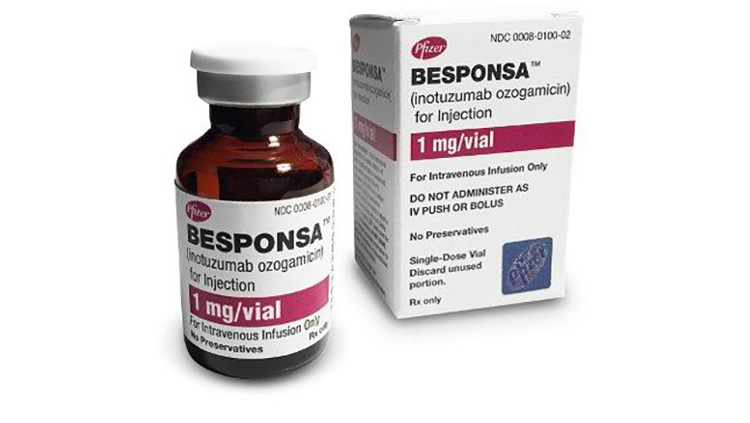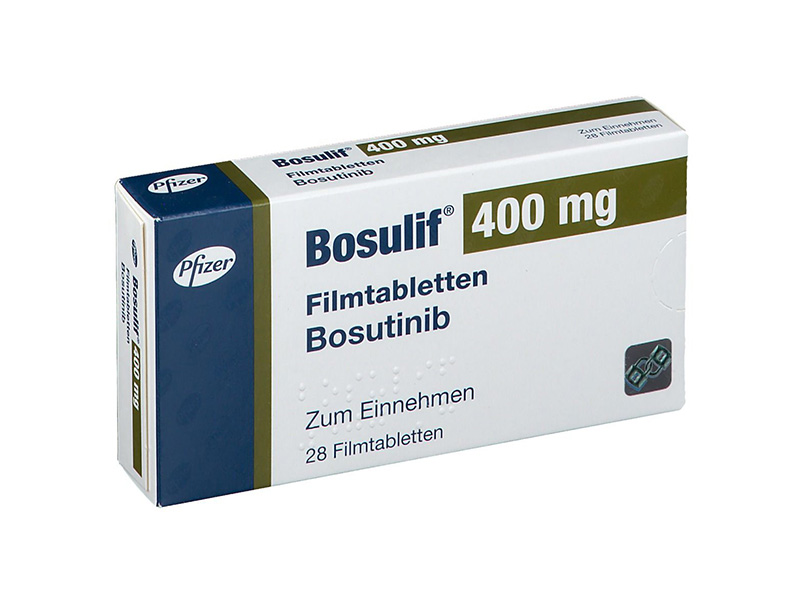Besponsa (inotuzumab ozogamicin) vs Bosulif (bosutinib)
Besponsa (inotuzumab ozogamicin) vs Bosulif (bosutinib)
Besponsa (inotuzumab ozogamicin) is an antibody-drug conjugate specifically indicated for the treatment of adults with relapsed or refractory B-cell precursor acute lymphoblastic leukemia (ALL), targeting the cancer cells with a toxin linked to an antibody. Bosulif (bosutinib), on the other hand, is a tyrosine kinase inhibitor used to treat adults with chronic, accelerated, or blast phase Philadelphia chromosome-positive chronic myelogenous leukemia (CML) who are resistant or intolerant to prior therapy. The choice between Besponsa and Bosulif would depend on the specific type and stage of leukemia a patient has, as well as their previous treatments and overall health condition, making it crucial to consult with a healthcare provider to determine the most appropriate treatment option.
Difference between Besponsa and Bosulif
| Metric | Besponsa (inotuzumab ozogamicin) | Bosulif (bosutinib) |
|---|---|---|
| Generic name | Inotuzumab ozogamicin | Bosutinib |
| Indications | Acute lymphoblastic leukemia (ALL) | Chronic myelogenous leukemia (CML) |
| Mechanism of action | Antibody-drug conjugate targeting CD22 | Tyrosine kinase inhibitor |
| Brand names | Besponsa | Bosulif |
| Administrative route | Intravenous | Oral |
| Side effects | Fever, neutropenia, thrombocytopenia, anemia, fatigue | Diarrhea, nausea, thrombocytopenia, rash, increased liver enzymes |
| Contraindications | Hypersensitivity to inotuzumab ozogamicin or excipients | Hypersensitivity to bosutinib or excipients |
| Drug class | Antineoplastic agent | Tyrosine kinase inhibitor |
| Manufacturer | Pfizer | Pfizer |
Efficacy
Besponsa (inotuzumab ozogamicin) Efficacy in Leukemia
Besponsa (inotuzumab ozogamicin) is an antibody-drug conjugate specifically indicated for the treatment of adults with relapsed or refractory B-cell precursor acute lymphoblastic leukemia (ALL). Clinical trials have demonstrated the efficacy of Besponsa in this patient population. In a pivotal phase 3 trial, Besponsa was compared to standard therapy and showed a higher rate of complete remission (CR) with 80.7% of patients achieving CR with full or partial hematologic recovery within the Besponsa group compared to 29.4% in the standard therapy group. Furthermore, patients treated with Besponsa had a longer median progression-free survival (PFS) and overall survival (OS) compared to those receiving standard chemotherapy.
The overall response rate (ORR) to Besponsa in clinical studies has been a significant measure of its efficacy. Patients who had previously failed multiple lines of treatment showed a response, indicating the potential of Besponsa as an effective salvage therapy. However, it is important to note that the treatment comes with a risk of severe side effects, such as hepatotoxicity, including veno-occlusive disease (VOD), and should be administered under the guidance of a healthcare professional experienced in the use of cancer chemotherapeutic agents.
Bosulif (bosutinib) Efficacy in Leukemia
Bosulif (bosutinib) is a tyrosine kinase inhibitor approved for the treatment of adult patients with chronic, accelerated, or blast phase Philadelphia chromosome-positive chronic myelogenous leukemia (Ph+ CML) who are resistant or intolerant to prior therapy. The efficacy of Bosulif was established in a single-arm trial where patients with chronic phase CML who had been previously treated with one or more tyrosine kinase inhibitors (TKIs) were given Bosulif. The trial demonstrated a significant cytogenetic response rate within the treated population, with many patients achieving a major cytogenetic response (MCyR) and some achieving a complete cytogenetic response (CCyR).
Further clinical trials have supported the use of Bosulif in the first-line setting as well. In a randomized phase 3 trial comparing Bosulif to imatinib in newly diagnosed chronic phase Ph+ CML patients, Bosulif demonstrated superior efficacy in achieving faster and higher rates of molecular and cytogenetic responses. The trial also indicated that Bosulif could be beneficial for patients with certain mutations that confer resistance to other TKIs. However, as with most cancer therapies, the use of Bosulif is associated with potential adverse effects, which include diarrhea, thrombocytopenia, and liver enzyme elevations, and its administration should be carefully monitored by healthcare professionals.
Regulatory Agency Approvals
Besponsa
-
European Medical Agency (EMA), European Union

-
Food and Drug Administration (FDA), USA

Bosulif
-
European Medical Agency (EMA), European Union

-
Food and Drug Administration (FDA), USA

Access Besponsa or Bosulif today
If Besponsa or Bosulif are not approved or available in your country (e.g. due to supply issues), you can access them via Everyone.org.
How it works

Make an enquiry
Choose the medicine you want to buy, answer a couple of questions, and upload your prescription to speed things up. We’ll get back to you within 24 hours.


Make an enquiry
Choose the medicine you want to buy, answer a couple of questions, and upload your prescription to speed things up. We’ll get back to you within 24 hours.


Breeze through the paperwork
We'll guide you through the required documents for importing unapproved medicine, ensuring you have all the necessary information.


Get a personalized quote
We’ll prepare a quote for you, including medicine costs and any shipping, administrative, or import fees that may apply.


Receive your medicine
Accept the quote and we’ll handle the rest - sourcing and safely delivering your medicine.

Some text on this page has been automatically generated. Speak to your physician before you start a new treatment or medication.
Let's talk
If you have any questions, call us or send us a message through WhatsApp or email:
Contact us




